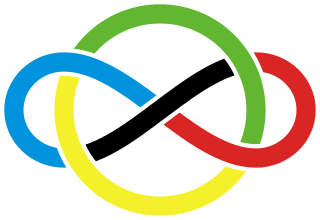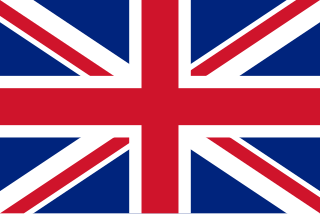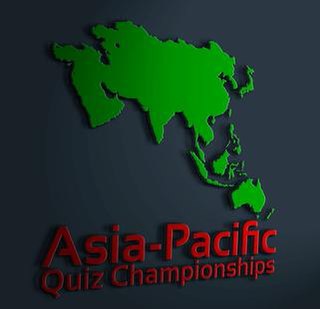
The International Olympiad in Informatics (IOI) is an annual competitive programming competition and one of the International Science Olympiads for secondary school students. The first IOI was held in 1989 in Pravetz, Bulgaria.

The Summer Olympic Games, also known as the Summer Olympics or the Games of the Olympiad, is a major international multi-sport event normally held once every four years. The inaugural Games took place in 1896 in Athens, Greece, and the most recent was held in 2024 in Paris, France. This was the first international multi-sport event of its kind, organized by the International Olympic Committee (IOC) founded by Pierre de Coubertin. The tradition of awarding medals began in 1904; in each Olympic event, gold medals are awarded for first place, silver medals for second place, and bronze medals for third place. The Winter Olympic Games were created out of the success of the Summer Olympic Games, which are regarded as the largest and most prestigious multi-sport international event in the world.

The International Mathematical Olympiad (IMO) is a mathematical olympiad for pre-university students, and is the oldest of the International Science Olympiads. It is "the most prestigious" mathematical competition in the world. The first IMO was held in Romania in 1959. It has since been held annually, except in 1980. More than 100 countries participate. Each country sends a team of up to six students, plus one team leader, one deputy leader, and observers.

Science Olympiad is an American team competition in which students compete in 23 events pertaining to various fields of science, including earth science, biology, chemistry, physics, and engineering. Over 7,800 middle school and high school teams from 50 U.S. states compete each year. U.S. territories do not compete; however, several international teams do compete in Science Olympiad tournaments in the US.

Australia competed at the 1976 Summer Olympics in Montreal, Quebec, Canada. 180 competitors, 146 men and 34 women, took part in 115 events in 20 sports. Australia performed poorly, winning one silver and four bronze medals, finishing thirty-second on the medals table. This result caused significant negative backlash within the country, and spurred Prime Minister Malcolm Fraser to set up the Australian Institute of Sport.

Great Britain, represented by the British Olympic Association (BOA), competed at the 2000 Summer Olympics in Sydney, Australia. British athletes have competed in every Summer Olympic Games. 310 competitors, 181 men and 129 women, took part in 179 events in 23 sports. These were the first Summer Olympics in which the team of selected athletes was officially known as Team GB in a highly successful attempt to unify all the competing athletes across all the sports and events and boost team morale. Going into the games following their exceptionally poor performance in Atlanta widespread expectations of the team were low.

The United States of America (USA) competed at the 1992 Summer Olympics in Barcelona, Spain. 545 competitors, 355 men and 190 women, took part in 248 events in 28 sports. At the closing ceremony, a segment of American culture was performed, as the country hosted the next Olympics in Atlanta.

The World Quizzing Championships is an individual quiz contest organised by the International Quizzing Association. The competition has been staged annually since 2003 with an increasing number of contestants from an increasing number of nations. Since 2006, the competition has been staged on the first Saturday of every June.
The European Team Championship is an international team chess event, eligible for the participation of European nations whose chess federations are located in zones 1.1 to 1.9. This more or less accords with the wider definition of Europe used in other events such as the Eurovision Song Contest and includes Israel, Russia and the former Soviet States. The competition is run under the auspices of the European Chess Union (ECU).
The International Quizzing Championships (IQC) is an annual multi-disciplinary quiz event, in which representatives from various countries compete as individuals, in pairs, and in teams.
In the late 1940s and 1950s the Australian National Quiz Championships were run and broadcast live by ABC Radio. The quiz was arranged to promote the federal government's security loans for post-war reconstruction.

Issa Schultz is a British-Australian television quiz personality best known for being one of the "chasers" on The Chase Australia, where he is nicknamed "The Supernerd".

The individual show jumping in equestrian at the 1948 Summer Olympics in London was held at the Wembley Stadium on 14 August. The competition consisted of a single round of jumping. In the case of a tie in points, a jump-off was arranged. The jump-off had no time limit, however, the time taken to complete the jump-off was used as a tie-breaker. The points from the individual competition were also used in the team competition. There were 44 competitors from 15 nations, with nations able to send up to three riders each. The event was won by Humberto Mariles of Mexico, with his teammate Rubén Uriza taking silver at the top of a three-way jump-off for second place. Mariles' win was Mexico's first victory in the event. Jean-François d'Orgeix of France earned that nation's first individual jumping medal since 1928 with his bronze.
Organised by the International Quizzing Association and held from 3 to 6 November 2016, the 2016 Quiz Olympiad in Athens was the inaugural Quiz Olympiad. Replacing the annual European Quizzing Championships, the event was open to quizzers from all over the world, with representatives of 26 nations competing.

The Asia-Pacific Quiz Championships (APQC) is the premier team quiz event in the Asia-Pacific region.

The individual show jumping or "Prix des Nations" at the 1952 Summer Olympics took place on 3 August, at the Helsinki Olympic Stadium. It was the ninth appearance of the event. For the first time, the event featured two rounds. There were 51 competitors from 20 nations, with each nation able to send a team of up to three riders with the results shared between team and individual events. The event was won by Pierre Jonquères d'Oriola of France, the nation's first victory in individual jumping since 1912 and second overall. Óscar Cristi of Chile took silver for that nation's first medal in the event. German rider Fritz Thiedemann earned bronze.
Organised by the International Quizzing Association and held from 11 to 14 November 2021, the 2021 Quiz Olympiad in Kraków was the second Quiz Olympiad. The event was planned to take place from 5 November 2020 until 8 November 2020, but was postponed a year due to the COVID-19 pandemic.
Organised by the International Quizzing Association and held from 7 to 10 November 2024, the 2024 Quiz Olympiad in Fuengirola will be the third Quiz Olympiad.












